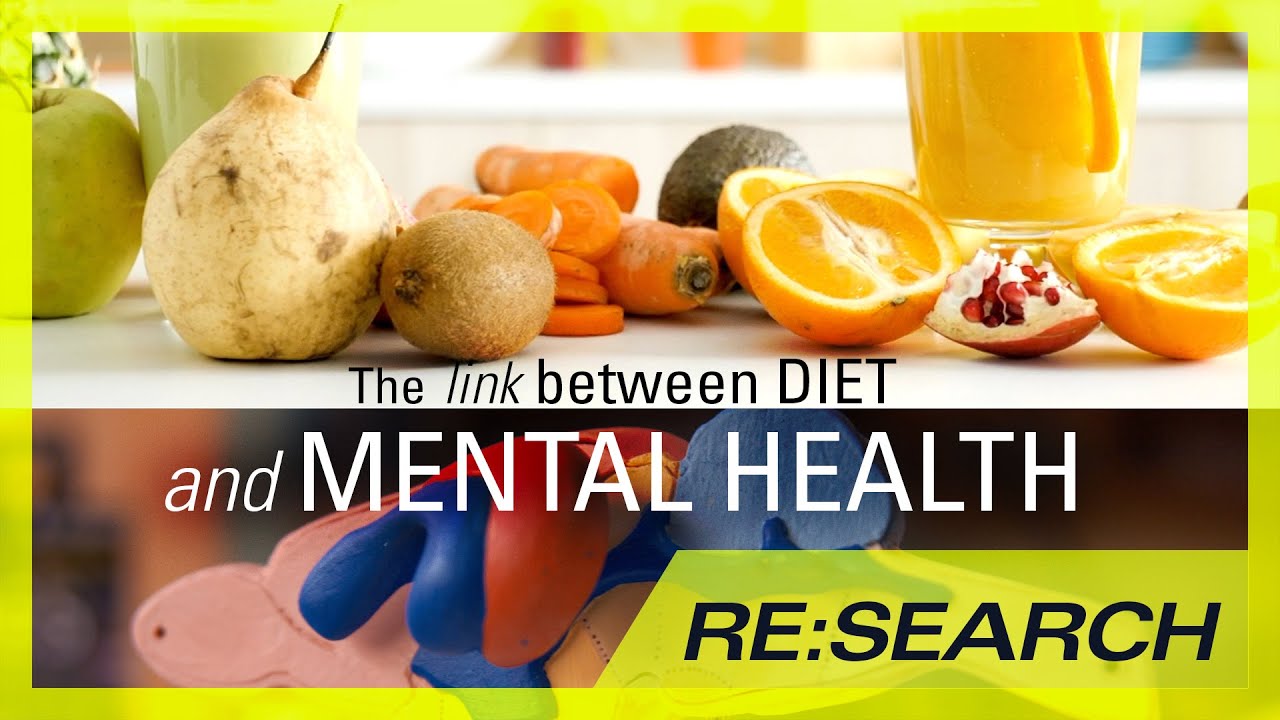Understanding The Connection Between Nutrition And Mental Health - Why A Balanced Diet Is Crucial For Well-being
Understanding the connection between nutrition and mental health is crucial for maintaining optimal well-being. The food we eat provides the nutrients our bodies and brains need to function correctly, and a balanced diet can help prevent the development of mental health issues.
Author:Katharine TateReviewer:Karan EmeryMar 06, 2023197 Shares2.6K Views

Understanding the connection between nutrition and mental healthis crucial for maintaining optimal well-being. The food we eat provides the nutrients our bodies and brains need to function correctly, and a balanced diet can help prevent the development of mental health issues.
Conversely, a poor diet lacking in essential nutrients can contribute to the development of conditions such as depression and anxiety. While many factors can impact our mental health, such as genetics, environment, and stress, diet is often overlooked.
However, research has shown that what we eat can significantly impact our mental health, and specific nutrients and dietary patterns have been linked to improved mental health outcomes.
In this article, we will explore the importance of understanding the connection between nutrition and mental health.
We will discuss the nutrients and dietary patterns that have been shown to improve mental health outcomes, the impact of a poor diet on mental health, and the role of a balanced diet in preventing and managing mental health conditions.
By the end of this discussion, we hope to provide a better understanding of how nutrition can impact mental health and why a balanced diet is crucial for overall well-being.
What Is The Relationship Between Nutrition And Mental Development?
The relationship between nutrition and mental development is significant, especially during the critical stages of brain development in early childhood and adolescence.
Proper nutrition is essential for the growth and development of the brain and its various functions, such as memory, attention, and learning.
Nutrients such as omega-3 fatty acids, B vitamins, iron, and zinc, are important for cognitive function and brain development.
Research has shown that malnutrition during early childhood can lead to irreversible brain damage and developmental delays, affecting a child's ability to learn and perform well in school.
Malnutrition during adolescence can also impair cognitive function and affect mental health outcomes in later life. Conversely, a healthy and balanced diet can support optimal brain development, enhance cognitive function, and protect against mental health issues such as depression and anxiety.
Therefore, it's crucial to prioritize a balanced and nutritious diet to support optimal mental development throughout life.
This includes consuming a variety of nutrient-dense foods such as fruits, vegetables, whole grains, lean proteins, and healthy fats, while limiting highly processed and sugary foods.
Adequate hydration is also essential for maintaining cognitive function and mental health. By adopting healthy dietary habits, individuals can support optimal brain development and improve their mental well-being.

The Link Between Diet and Mental Health
The Impact Of Nutrients On Mental Health
Research has shown that certain nutrients can have a positive impact on mental health. For example, omega-3 fatty acids, found in fatty fish and flaxseeds, have been linked to improved cognitive function and reduced risk of depression.
These essential fatty acids are important for brain health, as they help maintain the structure and function of brain cells. Studies have shown that individuals with low levels of omega-3 fatty acids in their diet are more likely to experience depression and other mood disorders.
Vitamin B12 and folate are also important for mental health. Vitamin B12, found in animal products, helps with the production of red blood cells and the maintenance of the nervous system.
A deficiency in this vitamin can lead to symptoms such as fatigue, weakness, and depression. Folate, found in leafy green vegetables, is important for DNA synthesis and repair, as well as the production of red blood cells. A deficiency in folate can also lead to symptoms such as fatigue and depression.
Iron is another nutrient that is essential for mental health. This mineral is important for the production of hemoglobin, which carries oxygen to the body's cells.
Iron is also important for healthy brain development, as it helps with the formation of myelin, a substance that coats nerve cells and facilitates their communication.
A deficiency in iron can lead to symptoms such as fatigue, impaired cognitive function, and poor concentration.
In addition to these nutrients, other vitamins and minerals, such as magnesium and zinc, have also been linked to improved mental health outcomes.
Consuming a varied and balanced diet that includes a wide range of nutrient-dense foods is important for supporting mental health and well-being.
Dietary Patterns And Mental Health
In addition to individual nutrients, certain dietary patterns have been linked to improved mental health outcomes. The Mediterranean diet, characterized by consuming a variety of fruits, vegetables, whole grains, lean proteins, and healthy fats, has been associated with a reduced risk of depression and cognitive decline.
The DASH diet, which focuses on consuming fruits, vegetables, whole grains, lean proteins, and low-fat dairy, has also been linked to a lower risk of depression.
The Impact Of A Poor Diet On Mental Health
A diet lacking in essential nutrients can contribute to the development of mental health issues. For example, diets high in refined sugar and processed foods have been linked to an increased risk of depression and anxiety.
Consuming a diet lacking in fruits, vegetables, and whole grains can lead to a nutrient deficiency, which can impair cognitive function and increase the risk of developing mental health issues.
Prioritizing A Balanced And Nutritious Diet For Mental Health
Prioritizing a balanced and nutritious diet is crucial for maintaining optimal mental health. This includes consuming a variety of nutrient-dense foods such as fruits, vegetables, whole grains, lean proteins, and healthy fats, while limiting highly processed and sugary foods.
Adequate hydration is also essential for maintaining cognitive function and mental health. It's important to recognize that food is not a replacement for professional mental health treatment, but it can play a significant role in improving mental health outcomes.
People Also Ask
What Are Some Nutrients That Have Been Linked To Improved Mental Health Outcomes?
Nutrients such as omega-3 fatty acids, vitamin B12, and folate have been linked to improved mental health outcomes.
How Does A Poor Diet Impact Mental Health?
A poor diet lacking in essential nutrients can contribute to the development of conditions such as depression and anxiety.
What Is The Role Of A Balanced Diet In Preventing And Managing Mental Health Conditions?
A balanced diet can help prevent the development of mental health issues and improve mental health outcomes. Consuming a variety of nutrient-dense foods while limiting highly processed and sugary foods is important.
How Can Nutrition Impact Mental Development During Childhood And Adolescence?
Proper nutrition is crucial for the growth and development of the brain and its various functions. Malnutrition during these critical stages can lead to irreversible brain damage and developmental delays, affecting a child's ability to learn and perform well in school.
Is Nutrition A Replacement For Professional Mental Health Treatment?
No, food is not a replacement for professional mental health treatment, but it can play a significant role in improving mental health outcomes. It's important to prioritize both a balanced and nutritious diet and professional mental health treatment for optimal well-being.
Final Words
Understanding the connection between nutrition and mental healthis crucial for maintaining optimal well-being. The food we consume provides the nutrients our body and brain need to function correctly, and a balanced diet can help prevent the development of mental health issues.
On the other hand, a poor diet lacking in essential nutrients can contribute to the development of conditions such as depression and anxiety.
Research has shown that certain nutrients, such as omega-3 fatty acids, vitamin B12, and folate, can positively impact our mental health. Additionally, certain dietary patterns, such as the Mediterranean diet, have been linked to a reduced risk of depression and cognitive decline.
It's essential to recognize that food is not a replacement for professional mental health treatment, but it can play a significant role in improving mental health outcomes.
By making informed decisions about what we eat, we can take control of our mental and physical health and improve our quality of life. Therefore, it is vital to prioritize a balanced and nutritious diet as a fundamental component of mental health maintenance.

Katharine Tate
Author

Karan Emery
Reviewer
Latest Articles
Popular Articles